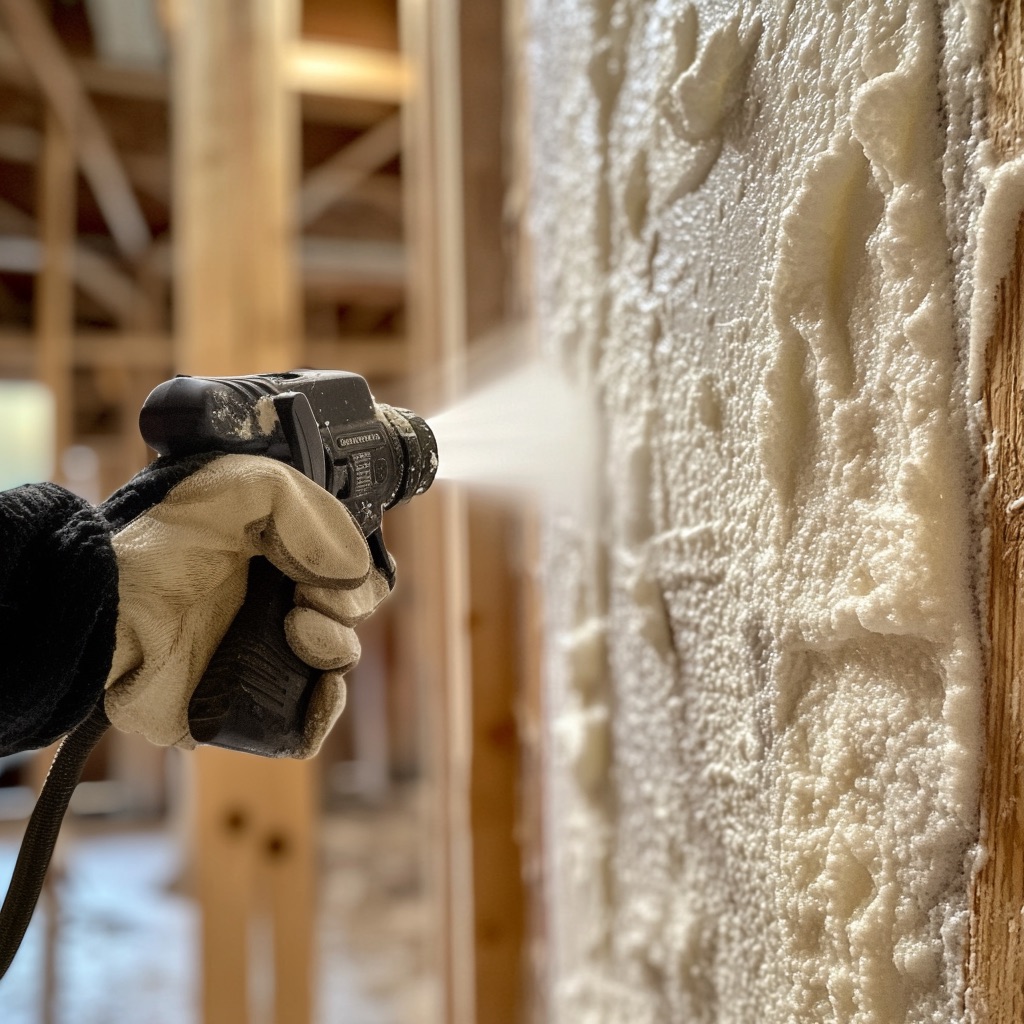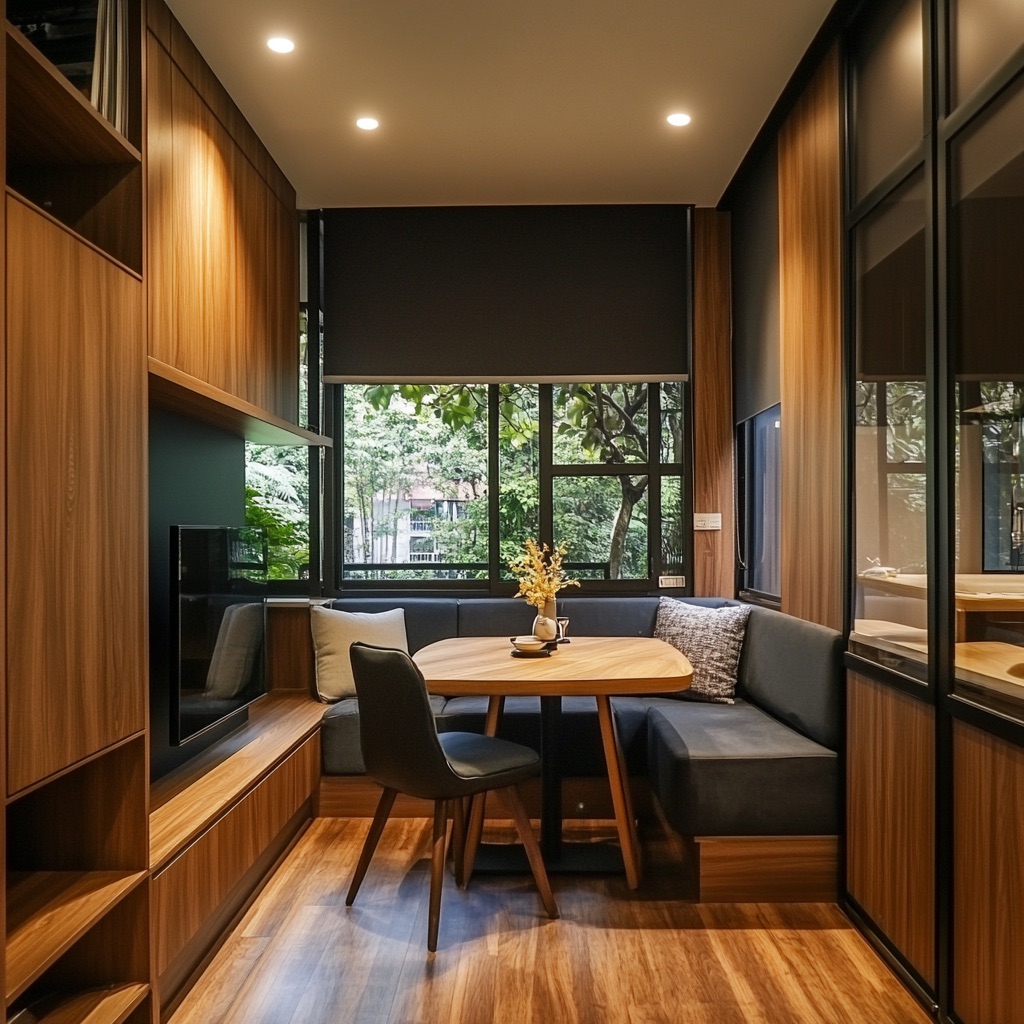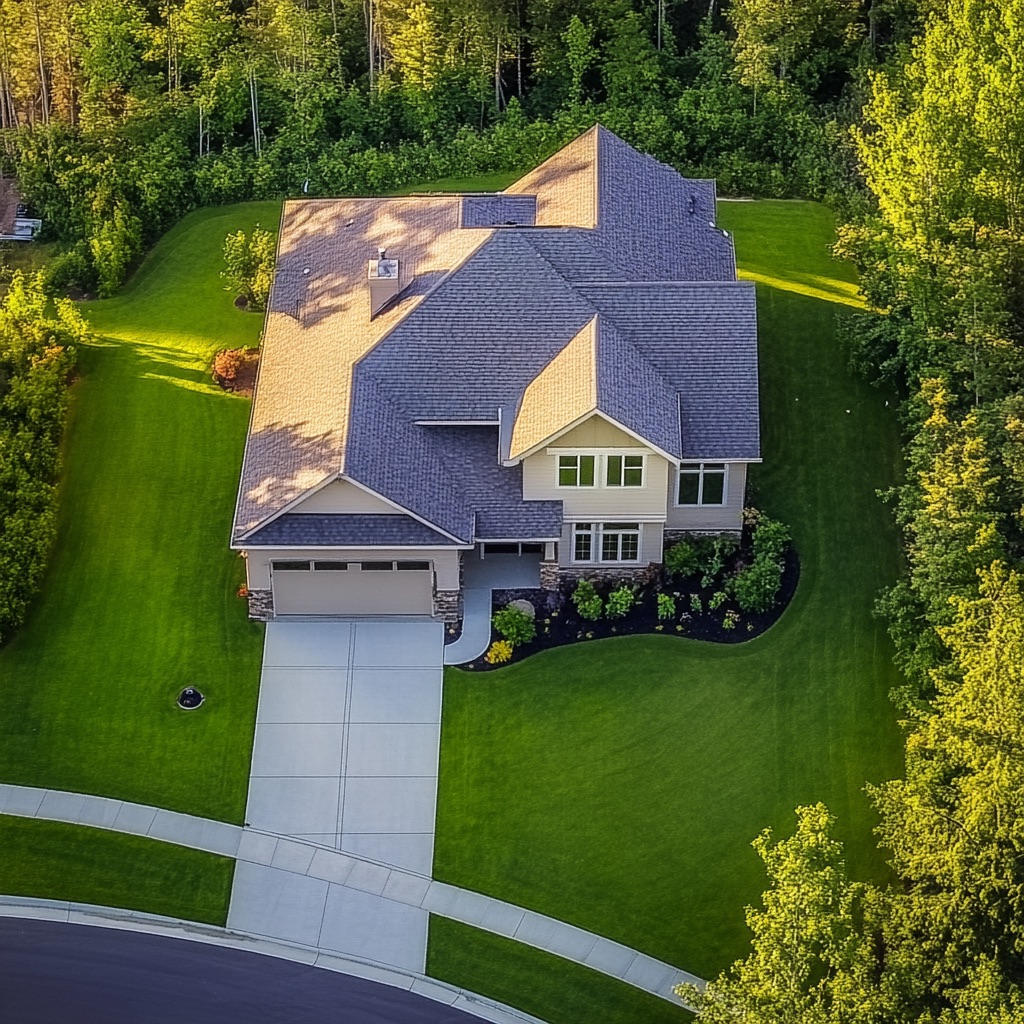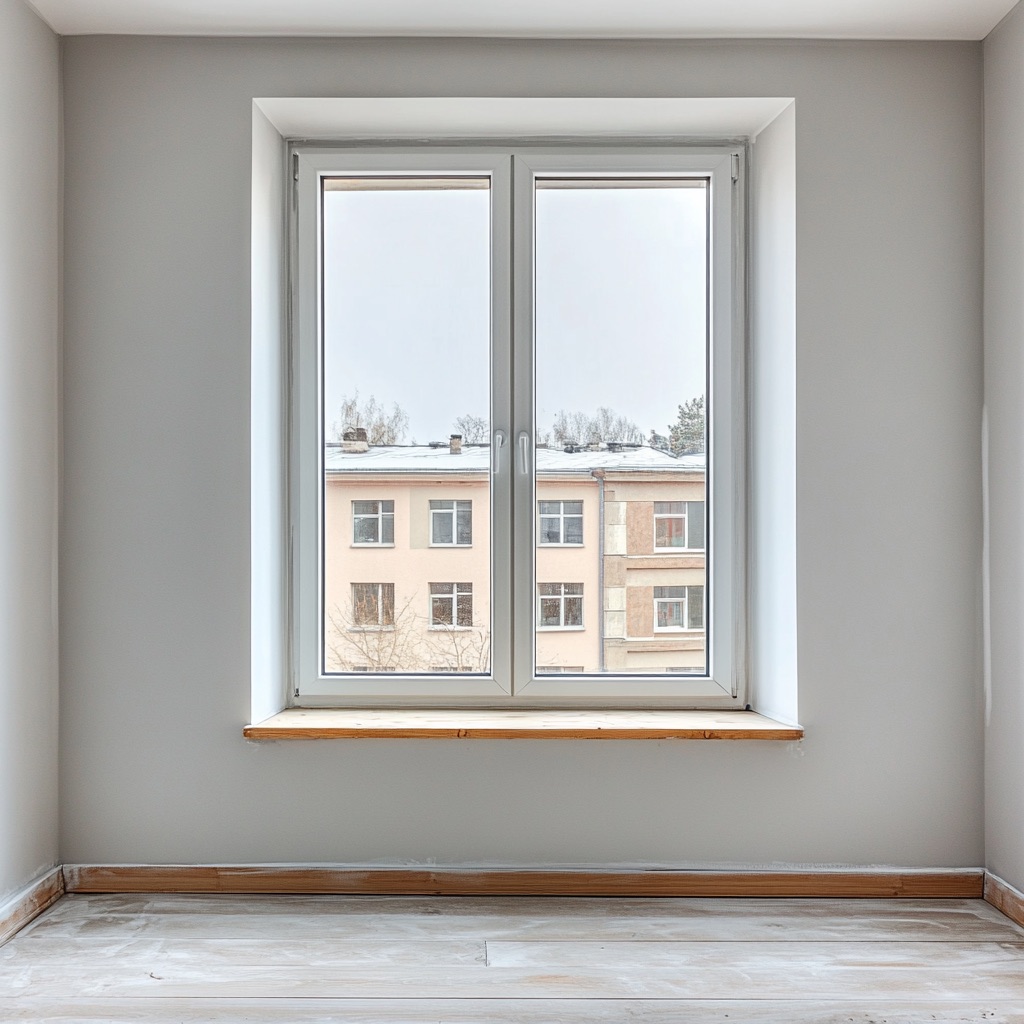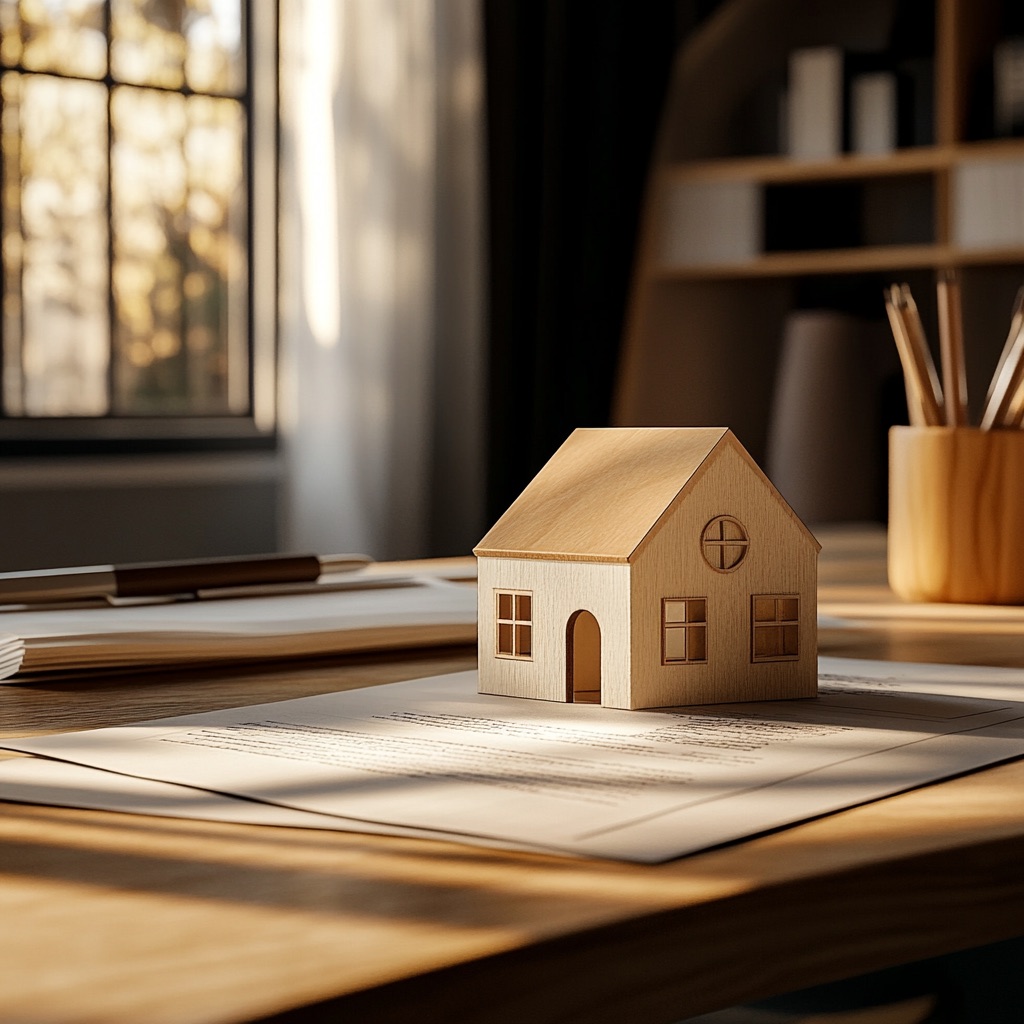uPVC stands for Unplasticized polyvinyl chloride which is a low-maintenance building material widely used for making doors. It is a strong, stiff, and durable plastic material that provides a sturdy foundation for making various door units.
It offers a high level of security and durability as this material is robust and thermal efficient. uPVC does not contain BPA and phthalates which are harmful substances that cause environmental damage. Thus it is a sustainable material.
uPVC doors are widely being used because of their low maintenance requirements and high lifespan. It does not discolor faster and provides an appealing look for a long time. Installing a uPVC door ensures you save up on the lifetime cost of repair and maintenance.
Not only for doors but this material is also used widely to make uPVC doors. Unlike traditionally used materials like wood which had a low lifespan and corroded easily, uPVC does not warp, rot, corrode, or require frequent painting and upkeep.
Benefits of uPVC Doors
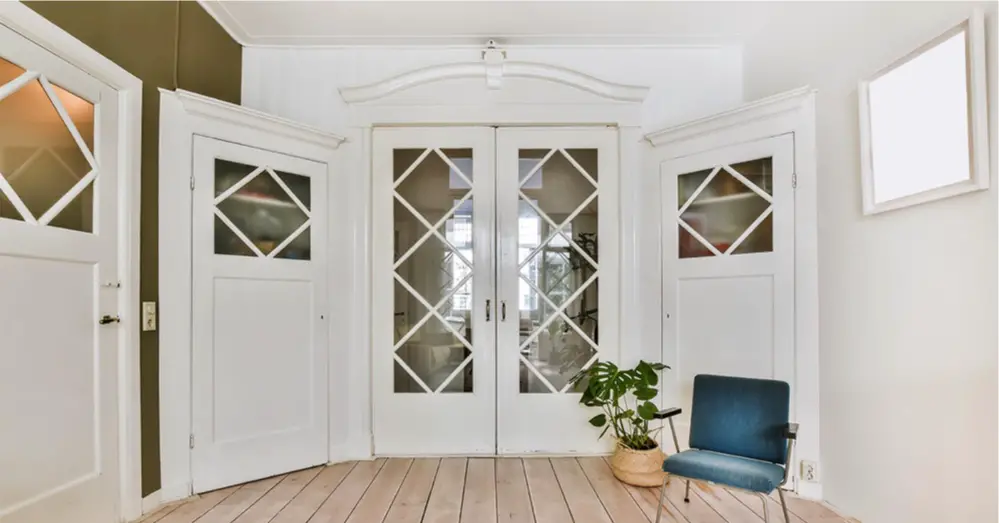
When it comes to listing the benefits of uPVC doors, there are many. Here below are some of the benefits of installing and preferring a uPVC door:
- Cost-effective – When choosing the material for your door the first thing you consider is the price. You always prefer good quality material at an affordable price. So yes the uPVC door meets both of your requirements. These doors are less expensive than the wood and aluminum materials used for making doors because you will have to spend more than 20% to 30 % more on a wooden door frame. So uPVC material is a cost-effective and safe option for you which will in future surely increase the property value.
- Easy maintenance – uPVC doors are easy to maintain and do not require extensive care. Washing it with dish soap and water can easily clean your door. You do not require a specific cleaning product for it. With just a little maintenance at regular intervals, you can make sure that your door looks new every day for a long time. Whereas if you prefer and install other doors made of different materials you will require regular care and specific maintenance requirements like painting, coating, etc.
- Durability – the doors made from uPVC material are highly durable. They last longer than wooden or steel doors. It has a high distortion ability that does not wrap, rot, or fall apart like wooden doors. uPVC doors last for about 50 years with little or no care. On the other hand wooden doors require regular painting, and stainless steel needs water resistance but these will not change color or freshness over a long period thus providing you best outcome.
- Energy efficient – uPVC doors are an energy-efficient option that provides good insulation and can reduce your heating and cooling costs. It has a thermal insulation feature that results in trapping the heat inside during winter and keeping the inside environment warm. So you won’t require a heater to keep you comfortable. Whereas in summer it ensures the hot breeze does not enter the house reducing your overall electricity bills. This ensures energy efficiency in your home. The reason is that uPVC material is a low conductor of heat.
- Corrosion-free – many times doors made of wood and steel get rusty and lose their mobility. But uPVC is a temperature-resistant material that does not corrode due to weather conditions like humidity and rain. These doors do not require lubrication or oiling and thus perform lifelong as well as new.
- Fire safety – uPVC material is an incombustible material which means it will not catch fire easily and can prevent fire hazards in the house. It also has a self-extinguishing property making it safe and ideal for homes and offices. uPVC doors offer you security and safety from accidents and can prevent the spread of fire in adjoining areas.
Read Also – Types of uPVC Doors and Their Salient Features
What Is a WPC Door?
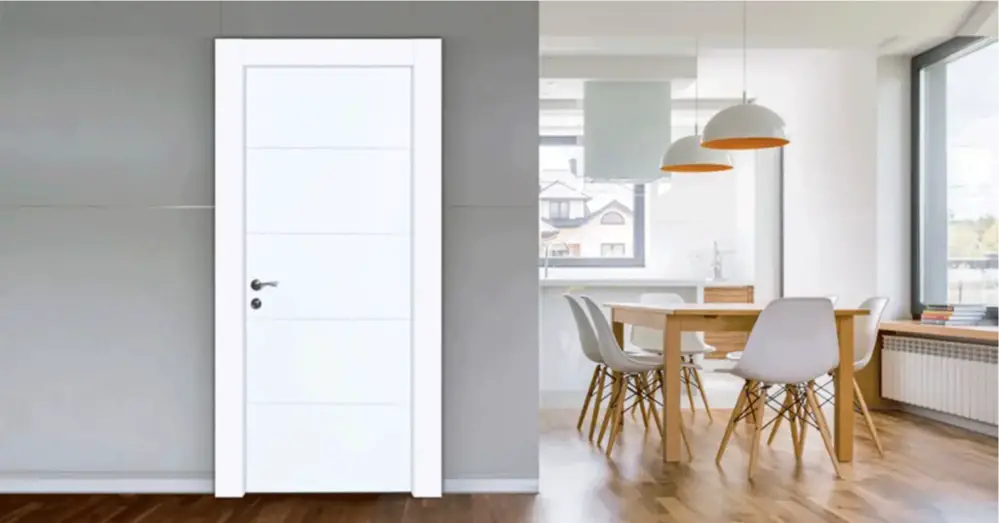
Wood plastic composite is made from a combination of wood material and thermoplastic. They have great strength and are highly durable materials. WPC doors are used in all kinds of establishments from residential to commercial.
These are nontoxic materials that provide environmental safety, as are easily recycled and have a low negative impact on the environment. Water can be used to clean WPC doors as these are resistant to dampness and water making it suitable for use in an external environment.
These are stylish doors with varied functionalities like easy maintenance, security, and durability. This door may endure 40 to 50 years easily and can be painted to give a smooth appearance. You can easily customize WPC doors according to your interior.
These doors are insect-resistant, antibacterial, and antiseptic, so pests cannot harm them. These are commonly used as interior doors in residential buildings in bedrooms, bathrooms, and closets. They offer a cost-effective alternative to traditional wooden doors. They can also be used in commercial spaces like offices and hotels.
Benefits of WPC Door
WPC doors are the emerging trend of the century as they provide an alternative to traditional wooden doors as they are durable, moisture resistant, and require low maintenance. Below listed are some of the benefits of WPC doors
- Environment friendly – the material from which these doors are made is formed under high pressure and temperature and requires vacuum conditions. During the production process no odors, toxins, and harmful glasses are released. These doors are recyclable and cause no secondary pollution and negative environmental consequences. Thus using doors made from WPC can make a small contribution to the ecological environment.
- Waterproof – WPC doors are waterproof, moth-proofed, mildew proof and have anti-corrosion properties. WPC products have dual properties both wood and plastic. So these are suitable for both indoor and outdoor doors no matter what the temperature, humidity, and ventilation conditions are. WPC bathroom doors are extensively being used as these are places that require anti-corrosion, mildew, and moth-proof doors. Unlike traditional wooden doors, these doors do not swell, warp, or rot when exposed to moisture or changes in temperature.
- High strength – WPC doors are highly durable and made from robust material. They have reasonable structure, high strength, and cavity structure design which makes sure that it is the perfect internal structure of the wood plastic foam material. Excellent formula, robust design, and reasonable production process ensure the great strength of WPC doors.
- Fast installation process – WPC doors can be easily installed and have a convenient structure. Bayonet connects the door cover line and the door frame line which does not require gun nails or glue and can be fixed easily, thus saving time and effort for the installation process.
- Thermal and sound insulation – the materials of WPC door, wood, and plastic have uniform and fine cells that are specially designed in cavity structure which ensures that the thermal conductivity is lower than the ordinary plastic material. This also makes sure that there is noise cancellation from the outside world providing you with a peaceful and quiet environment.
- Weather Resistance – WPC doors exhibit excellent resistance to extreme weather conditions like rain, sunlight, and temperature fluctuations. These characteristics make them idle for outdoor application.
- Termite Resistance – The WPC door frame though made from wood is naturally resistant to termites and other wood-boring insects providing an added advantage in areas prone to infestations.
Comparative Study Between uPVC and WPC Doors
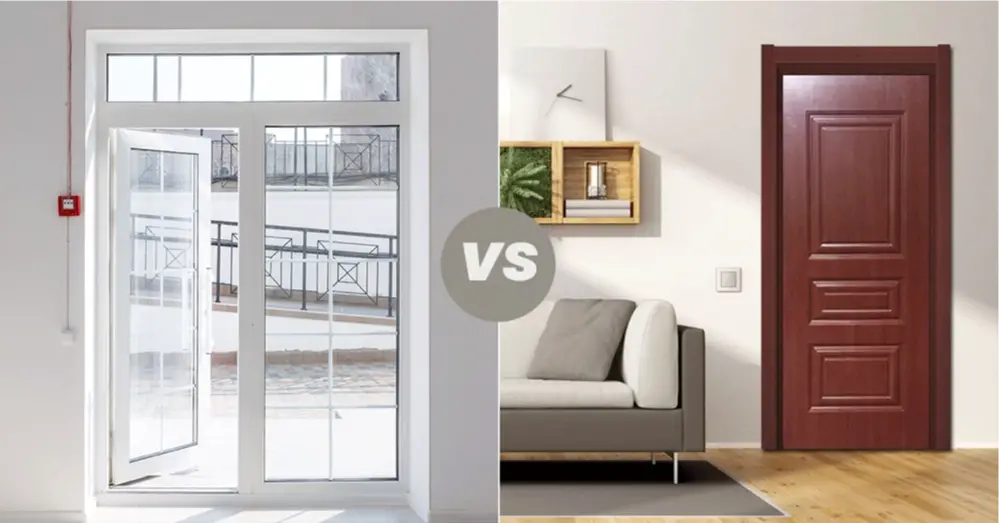
Structure
Both uPVC and WPC doors are made through a one-piece molding process, but they use different materials and methods to achieve strength and insulation. uPVC is made from rigid PVC, which is a durable and lightweight plastic material.
Unplasticized polyvinyl chloride is known for its weather resistance and low maintenance requirement. WPC doors are made from a composite material that combines wood fiber and thermoplastics like PE, PP, and PVC.
WPC doors are made by mixing wood fibers with plastic to make them strong. They fill the inside with air and seal the edges with PU foam for keeping heat inside and resisting noise out. If you need more sound protection, you can add PU foam inside.
On the other hand, uPVC doors are also made in one piece, but the material isn’t as strong. So, they need metal parts inside to make them stronger. This makes uPVC doors more dependent on additional support to be as sturdy as WPC doors.
Aesthetics
WPC doors offer sleek aesthetics with options for smooth surfaces that can be painted in a wide range of high-quality colors. They can also obtain natural wood grains and various textures through PVC coatings.
Combining metal strips, glass, and trimmings allows for the creation of beautiful and advanced designs. WPC doors and frames are particularly suitable for interior residents due to their customizable nature. Dealers can customize these doors according to the trends of the marketplace.
In contrast, uPVC doors typically feature a simpler design that may not mimic natural materials. They do, however, offer opportunities for more personalization and distinctive designs.
Overall, WPC doors excel in offering aesthetic diversity and customization, making them ideal for various residential and public housing applications where style and design flexibility are valued.
Price
uPVC door prices vary according to place and market but are usually cheaper than WPC doors. As WPC doors are more stronger and durable they are expensive. Making uPVC an ideal choice for people with a limited budget and WPC a perfect choice for people looking for durable and stronger doors.
Compatibility with Local Hardware
uPVC and WPC doors are both widely compatible with local hardware used in construction projects. They are designed to accommodate standard locks, handles, hinges, and other necessary hardware, ensuring ease of installation and maintenance.
This compatibility with a broad range of hardware options available in the market makes both uPVC and WPC doors versatile choices for various building applications. Whether for residential or commercial use, their ability to integrate seamlessly with standard hardware contributes to their popularity in construction projects.
Personal Installation
When it comes to personal installation, both WPC doors and uPVC doors are designed to be DIY-friendly for individuals with basic skills and experience.WPC doors typically come with pre-drilled holes for hardware which simplify the installation process.
However, they tend to be heavier, with a standard-size door weighing between 35 to 40 kg. This weight can make handling and installation more challenging compared to uPVC doors.
uPVC doors, on the other hand, are also designed for straightforward installation with pre-drilled holes. They are generally lighter, weighing between 20 to 30 kg for standard sizes. This lighter weight can make uPVC doors easier to handle and install, especially for DIY enthusiasts.
So, WPC doors might require more effort due to their heavier weight, whereas uPVC doors are lighter and thus easier to manage during installation.
Color
Both uPVC and WPC doors are available in a variety of colors and you can choose from a wide range of styles and designs.WPC doors are available in a wide range of colors, including popular choices like white and beige, as well as others such as black, grey, brown, and wood-effect finishes.
While uPVC doors also offer versatility in color. They are commonly available in faux wood finishes that replicate different wood species, offering variations in color and grain patterns. Additionally, solid colors like white, black, or gray are also popular choices.
Both WPC and uPVC doors cater to a wide range of aesthetic preferences and design requirements with their diverse color options. They also accommodate custom color requests, ensuring flexibility for personalized design choices.
Sound and Dustproof
WPC doors give outstanding performance and surpass all other materials used for making doors including uPVC. These doors are dustproof, soundproof, waterproof, and moisture proof. WPC doors are noncombustible and thus are of the highest quality possible.
Return on Investment
When we look from the perspective of return on investment, WPC doors have a lifespan of about 50 years on the other hand uPVC doors only last for 30 years. The features of the WPC door stand out making it the preferred choice of customers because of its moisture-proof performance, aesthetic look, and durability.
Which Is Better?
Both WPC and uPVC doors have their benefits and you can choose either according to your need and preference. If you have a high budget and are looking for doors that provide good thermal insulation, proper safety and security, and other benefits you must opt for a WPC door.
Whereas if you have a low budget and want a durable and aesthetically pleasing door you should opt for an uPVC door. The above-listed benefits can help you choose the right option for your door.
The Takeaway
Thus both of these doors provide you with multiple benefits and choosing can be a difficult choice. Read wisely before choosing a door for your home. WPC doors are more durable, highly insulated, and better performed over the year whereas uPVC doors are cost-effective and do not rust over time. Both are aesthetically pleasing and provide good value to your estate.
Recap
